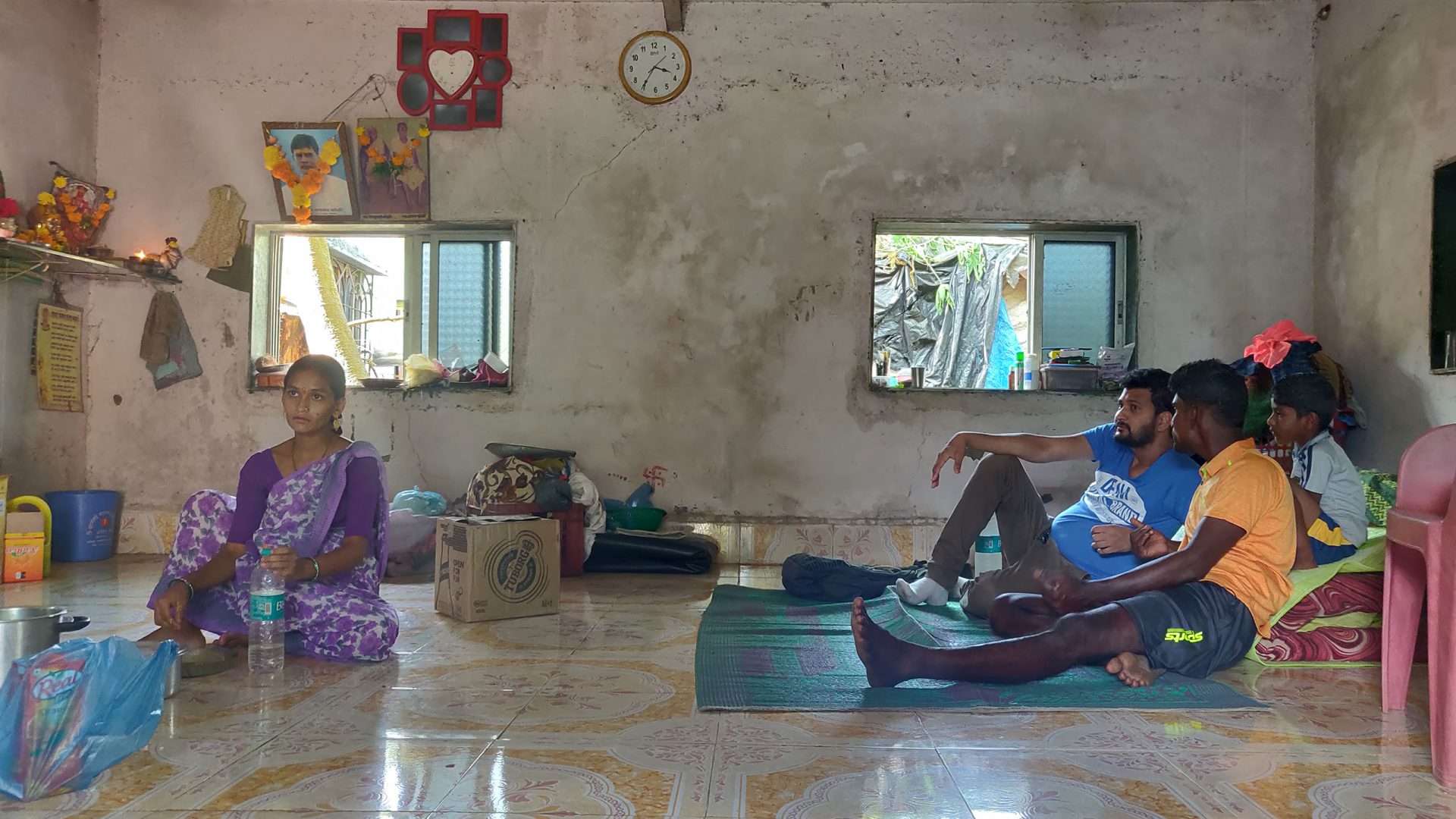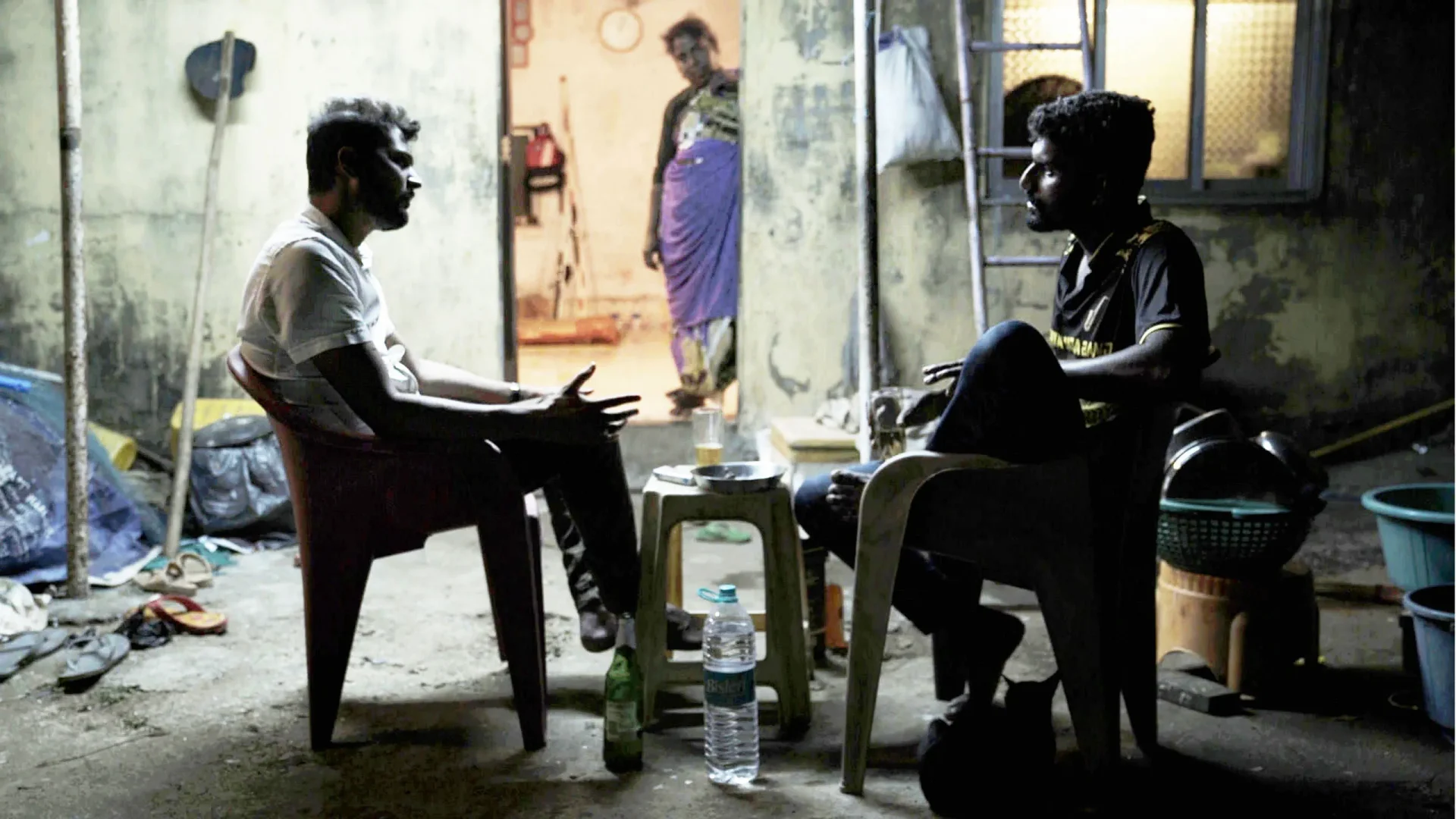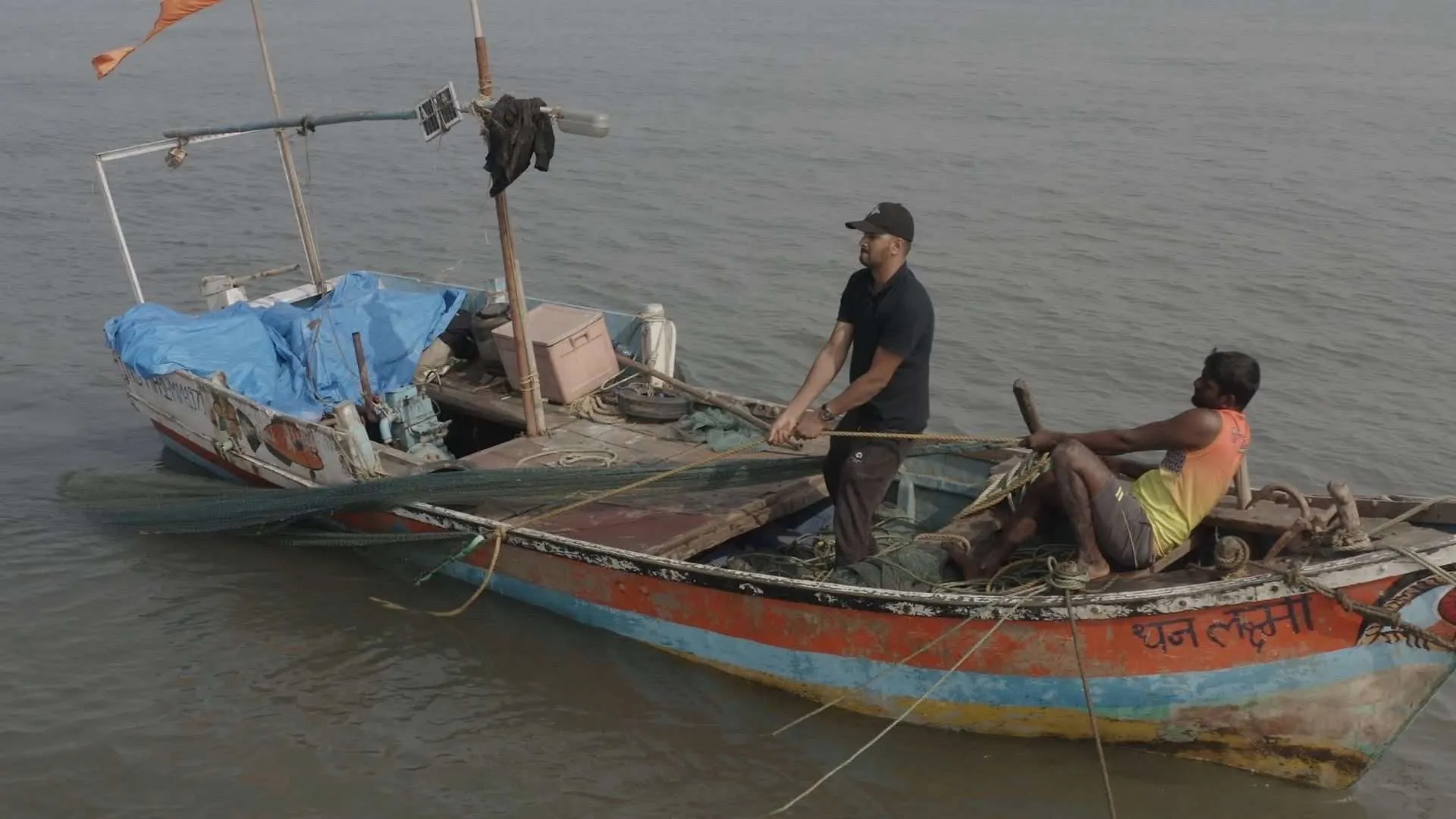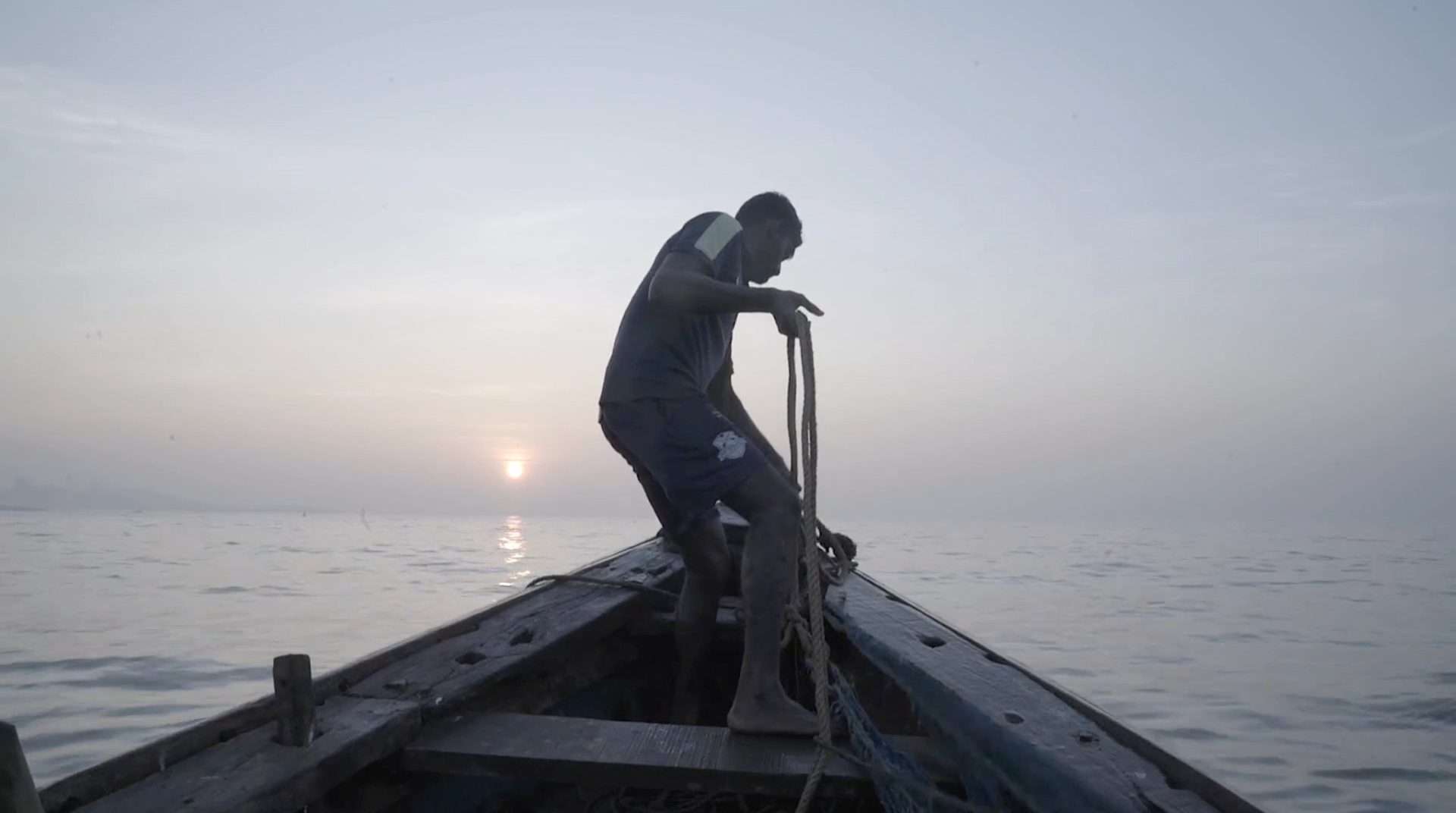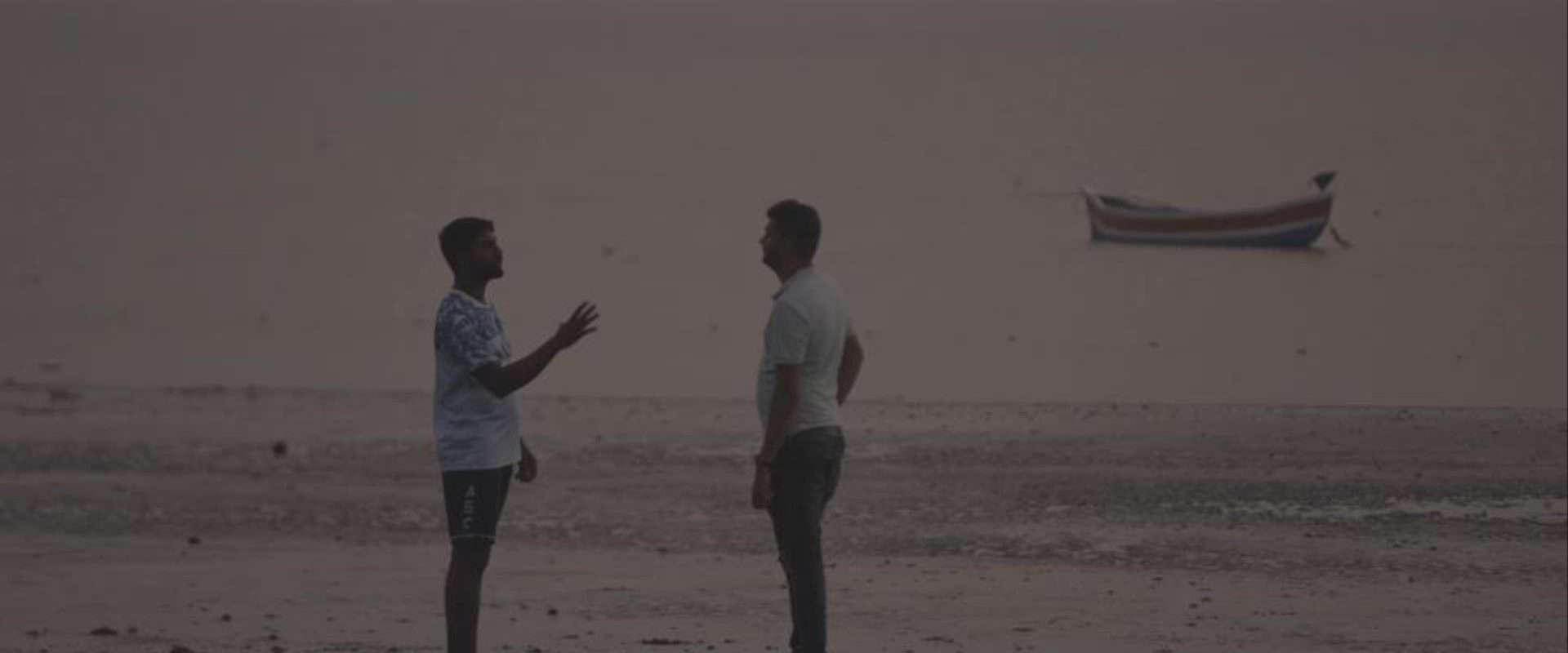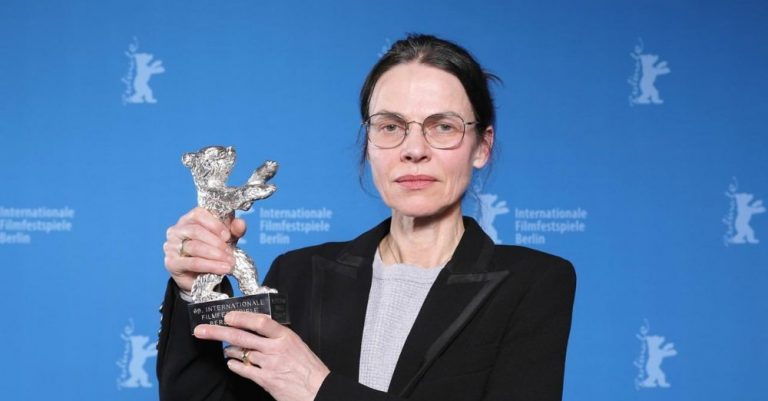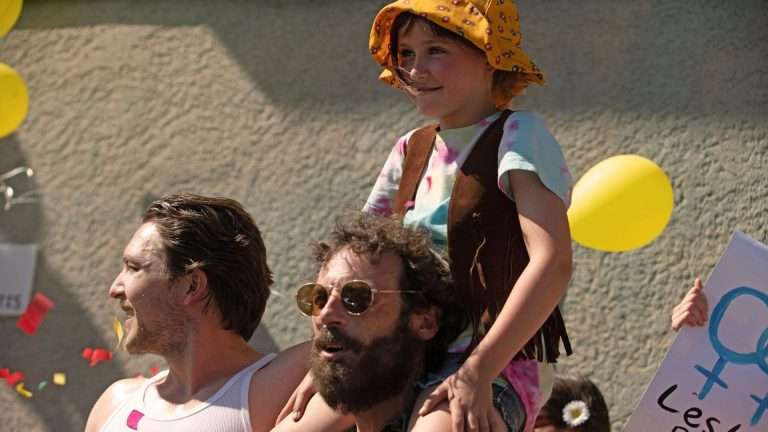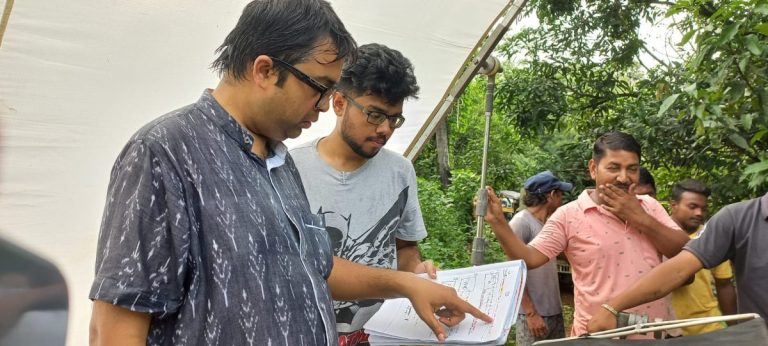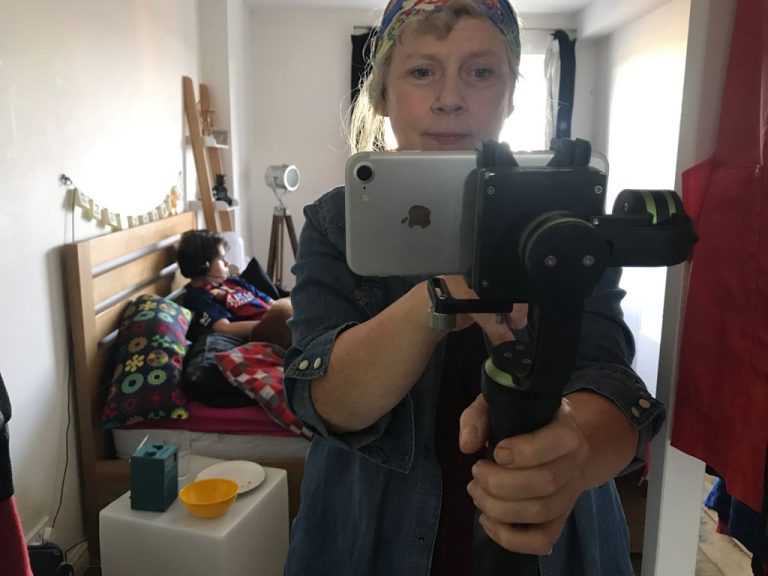Sarvnik Kaur is the director of coveted documentary Against the Tide (2023) that captures the lives of indigenous fishing communities in Mumbai in the aftermath of global warming. What feels like personal narratives of Rakesh and Ganesh, two fishermen from the Koli community belonging to two different classes due to their material conditions, paves way for a deeper exploration of the challenges of climate change, its universal but discriminatory impact on the lives of people, and the conflict between tradition and modernity.
The themes in Against the Tide (2023) are overt enough to make room for doubt if the reality has been adjusted for commentary. Hence, a conversation with the filmmaker became imperative to know the process that went behind documenting the lives of her subjects. It was also felt important to dive into her motivations and the methods by which the power dynamics were mitigated between her, a filmmaker with the privilege of a camera, and her subjects, two fishermen exposed to the vulnerabilities arising from climate change.
In a discussion that toys around the ideas of reality, truth, power and empathy, Sarvnik Kaur proves to be insightful not just in her approach as a filmmaker but also in her outlook towards life and the world.
There is a fundamental idea from the beginning of cinema that you cannot capture reality. When a filmmaker goes to an individual or a community to capture their reality and then represent their reality on their behalf, they carry with themselves a set of privileges: more often than not there are material privileges by virtue of a filmmaker’s caste-class position, putting them at an advantage to the individual or community they are representing.
The second privilege, which is universally applicable and indelible, is the privilege of possessing the camera. The camera allows the filmmaker to “choose” the reality they want to represent. In light of these considerations, what was the guiding thought behind selecting Rakesh and Ganesh, two fishermen from two different social groups, as your subjects?
Sarvnik Kaur: I think any filmmaker who ends up deciding what any film actually is a reflection of the filmmaker’s experience or their own personal quest and query in life. No film is devoid of the experience of the filmmaker – where they come from, who they are, how they perceive the environment around them, and how they choose to make sense of it.
My first film was “A Ballad of Melodies” (2016). It was on the resistance that was coming through the music and art of Kashmir. I don’t think of myself as either an anthropologist, an ethnographer, or an activist of any kind. I’m a storyteller and my job is to be able to tell a narrative that can be absorbed by the person who is watching it with the least resistance. The world, as I see it from my point of view at this point in time, is very, very divided by strict definitions. You are either this or that or not at all. With that comes very strange dichotomies which life actually defies at all points of time. Life is very malleable. Human life is not rigid, it’s flexible.
“A Ballad of Melodies” came out in 2016, a couple of years after the ruling party came to power. A regular person in India has been fed the popular discourse of “doodh maangoge to kheer denge, kashmir maangoge to cheer denge.” There is a very clear-cut divide. And people’s minds are already blocked. As an artist, the first thought was that I want to tell my story where even a person who has already predetermined ideas about a subject finds himself not resisting the narrative that I’m building or that I’ve built.
Stories too are beyond ideologies and beyond politics. People are political. People have ideologies. Stories can be rooted in thought, but the story’s primary job is to be able to pierce through the set notion that a person may carry. And so, as a filmmaker, I think I have to think constantly that there is already a very divided world that I’m going into. The same also happened with “Against the Tide” (2023). People are in denial of climate change. For climate change, as I thought, heard from, or observed of people, they are in denial. Therefore, my craft comes into play where I have to figure out – as per the subject matter that I’m dealing with at that particular moment – what form this film can take which will take away the resistance of the people as they’re watching this film?
At the end of “Against the Tide,” people may deny climate change, but they can’t deny that there is no fish in the sea. They may find whatever reason for why there is no fish in the sea; whether they say it is because of overfishing, or because of Chinese vessels, they will have to come to the conclusion that there is a phenomenon that is happening, which is called climate change.
As a filmmaker from mainland India, I am very aware of the power dynamic of wielding a camera. The language of filming overlaps with the militaristic language. (During the shooting of “A Ballad of Melodies”) I, as a mainlander, was painfully aware of the fact that I am an outsider. By the time I reached Kashmir, I knew there was a conflict. But it was the first time I saw (mainland) Indians not being welcome. For the first time, my own identity, my own Indianness came into my conscious mind.
Before that, I had not thought of myself as an Indian or a non-Indian. I thought of myself as a Sardar because my parents were practicing sardars. They also came with a historical experience of partition. My grandfather, having been uprooted from his house in what was once consolidated Punjab with five rivers, finding himself as a refugee at the age of 13, having lost his parents in riots, and finding himself in Delhi, had to start like an orphan all over again. He lost touch with his siblings. Some 75 years later, when he died, he still dreamt of that homeland. To him, he was not a Pakistani or an Indian. He had the status of a refugee. The fact that he was a practitioner of a particular religion made him an easy target or a sitting duck for violence that had broken out and displaced him.
Then, in the case of my parents as well, we lost our home when the anti-Sikh riots happened in 1984. I was one year old. And at that time also we were the other, the people who could easily be identified. They had to jump through neighbors’ houses to be able to save their lives because phosphorus was thrown on the walls of the house and it was burned down. So, the idea of being the other has always been present in my mind; what makes you the other? Who is the other? What does it mean to be the other? Therefore, when I am making a film, I am always thinking that people who are on my side or people who think like me are easy to reach.
But I need to be able to appeal to the other in a way and form which is emotional, and not just rational. Because there is a reason beyond rationality. I want to be able to knock on that reason, and that reason comes from lived experiences, that reason comes from being a human being. Having the capacity to be empathetic, having the ability to be able to feel for the other’s story, and finding yourself in that story, and that is basically what ends up for me deciding both the form and the approach, so to say in terms of when I come to making my films.
That was quite insightful, Sarvnik. We know that for any individual or community, there is a preconceived idea, or narrative that runs in society. In the case of the Koli community of fisherfolks that you were documenting for “Against the Tide,” there must have been some preconceived notions that you might have come across. Therefore, my question revolves around predetermination: The audience has a preconceived notion about an individual or a community. When you are documenting such a subject, there is a possibility of predetermining a certain story. What is your process to avoid this? Do you first live in the story, experience it yourself, and then start documenting or do you move with a predetermined idea, especially while documenting with the motive to allow a biased audience to absorb your story with the least resistance?
Sarvnik Kaur: “Against the Tide” was not what it has become over the course of five years. When I started the film, I had the idea of the land belonging to the people and the people belonging to its land. There was a collective of fisherwomen that I was working with, and they were trying to raise a protest against BMC wanting to make their 175-year-old fish market into a mall. They were promised that they would have the basement of the mall to sell their fish. These 200-250 women know that BMC isn’t going to hold on to this promise. They’ve lived in Bombay, and their ancestors lived in Bombay.
They’ve seen their land and their identity in this city being squeezed to the point of suffocation. I was actually working on the idea that the first right to this land, which is called Bombay City, is that of its Indigenous people, the Kolis because they have lived here for the longest. But once I started to go deeper into that idea, I realized that I was not able to make a very watertight case. My case is subject to several objections because Bombay is also a city made by people. It’s not a city that was always there.
These seven islands where the Kolis lived have been reclaimed from the sea and joined together to the mainland by people, and the very history of Bombay is that of immigrants. People from all over the world came together to make this city called Bombay. And a Bombay that welcomes immigrants, a Bombay that is run on the shoulders and by the very sweat and blood of the migrants, including people like me, misfits from across the country who do not find employment, who do not find a place anywhere else, come here and find a place. Therefore, in a very xenophobic environment, is it right for me to make a case like that for the indigenous people?
Another thing that happened was that I was in one of these workshops in Calcutta where my film was shortlisted. I had taken the case of these 200 or so women who were trying to set up a resistance, and their plan was to block the roads of Bombay and create a traffic jam to let people know that they stand against the idea of BMC’s conversion of this land into a mall. At the workshop, someone told me that nobody is interested in films about sloganeering. I hadn’t been interested in the audience that much but one thing I felt in my heart was that this was the truth. People have become somewhat desensitized to the language of resistance.
The people who are putting up their resistance are not in the wrong. But the world that we live in where the struggle for survival is so all-consuming that there is no space left for anyone to spare for someone else’s cause. People have also developed a kind of fatigue to causes. This (what the person at the workshop said) made sense to me and it ended up shaping my film’s form. That’s why, instead of a group of people who are resisting, I wanted to bring it down to individuals whose life struggles we could see in our own lives. The idea was that no one should feel while watching that this is not me and this is not my concern. Because the life of a human is very banal.
Their routines are invariably the same. Whether you are a software engineer or a fisherman, you wake up in the morning, brush your teeth, shit and shower, eat food, and go to work, whatever work you are doing, whether catching fish or engineering. Our lives are quite similar, our concerns are quite similar. In many ways, we are all tethered together in humanity.
We are all interconnected by those very basic feelings that all of us have, irrespective of the jobs that we do. At this point in time, we all feel like we are not heard. And by telling one person’s story, you are actually telling everyone’s story. We all see ourselves as victims in this world because it is so hard in a capitalist world where fear is put so innately in us. We are all made to feel inadequate all the time. We must struggle because we are inadequate.
We will die if there is no money, we will die if there is no power. It is reinforced to us from the time we are born. When everyone is a victim, no one has space or peace of mind in their lives to spare anyone else’s misery. Once you recognize that everyone is coming from a place of trauma and a person who has been traumatized will always find himself a victim so that he can feel better about himself then you start your story from a place where you say hey, I recognize your trauma, and you know what? You’re not alone.
You’re going to see that a similar kind of trauma is being lived by another person miles removed from you. That’s where perceptions get opened up. And that is where my preconceived notion, that there is a claim to land, was broken and turned into a human story where a person has the right to live just as much as I have the right to live. That is how the story should be perceived and made.
There is the idea of knowledge production in the process of documenting. When you go with a camera to capture people and communities, knowledge is produced continuously. It is never a discrete process. As a result, it is an inherent shortcoming of the process of documenting that a lot of knowledge leaks apart from what is captured and kept. Talking specifically about the dynamics between a filmmaker and their subject, the filmmaker can find themselves in the advantaged position of power. How did you overcome this lopsidedness in power dynamics and what was your process of documenting to capture as much knowledge as possible, which is produced by virtue of interactions before and behind the camera?
Additionally, when you finally documented, what did you choose to keep and what did you remove? I know it’s a broad question, but I just wanted to check if there is anything particular that we as the audience will never know.
Sarvnik Kaur: While I agree with the possession of privilege, the assumption that the person with the camera wields complete authority can be simplistic. In such a dynamic, the position of power is constantly being reversed. You have to trust that till the time there is mutual respect, there will be opportunity. Life has a tendency to repeat itself.
If something doesn’t happen today, we will do it tomorrow, and if it doesn’t happen tomorrow, we will do it the day after. I never gave myself a deadline. It wasn’t important to me that the film should be completed tomorrow. We have come to climb a mountain; we will do it slowly. Because if we do it fast, we will get tired. And it will not have the depth that you want to have (in your story). It will not have the participation that you want from them. In this work, force cannot be used. If you use force too much, you will run the risk of alienating your characters.
You are independent. You cannot give money to your subjects. You are only taking time from them. If you are only taking things and not giving anything in return, then you are only left with love and respect to give. And that’s where it’s a very different job from an academician’s job. There are no concepts here but only life being lived. If I don’t understand and appreciate it, I have no business being in their lives. Hence, I was being changed as much as they were changing.
Additionally, mine is a very collaborative effort. You can see in the documentary for yourself that we are at such places in our lives where there is no reason for a camera to be. Thinking of them as foolish or gullible would be a huge mistake. And I didn’t make that mistake, which is why I could access those places in their lives. There was constant consultation.
According to me, if your character in a story doesn’t agree with your story then you cannot tell that story. A lot of times, it has happened that they have given me suggestions. E.g. Ganesh asked me to tag along when he goes to take the next loan. You can understand the level of involvement of this person. How does a man get ready to transcend his manhood in our patriarchal time and ask you to join him as he goes to take another loan, considering how masculine fishing as a job is, and nothing can be more damaging to a man’s ego than not being able to provide for his family.
You can gauge how involved that person has been every step of the way. Therefore, it has been a very collaborative effort where the constant reminder to me was to not act too smart. As long as you are useful to them, as long as you are in consultation with them, the process will go. When you start forcing it, the process will break.
A story that can be told is not an eternal story and an eternal story can never be told.
A lot of people asked me, “Are they paid actors?” Simplicity has become radical. That’s why it’s met with disbelief. I did it with simplicity. I did it by taking into account that their lives are infinite. There is nothing that I can impose on their lives that has not been done more cinematically. I have to keep my intervention at the least because it is already a huge privilege to be here with a camera. I told myself to just sit quietly, and not use my brain too much, but use my heart to connect emotionally to a certain moment. I did not prioritize the need to film every moment. I prioritized that moment itself. Because this was also a human relationship that I was forming.
I was working with men, but I got a lot of love and trust from the women. Manali, Ganesh’s wife, started to use my camera as a means of catharsis. Shame is integral in a human relationship. The things that she could not tell her husband were the things that came out of her mouth when the camera turned on. She wanted the world to know. She wanted her side of the story to be told.
She wanted to be witnessed living this life as she is leading it, where no one appreciates the fact that even though she is adding monetary value to the house, no one is crediting her for it. People come up with different motivations when they come in front of the camera. The basis of this relationship is mutual respect and trust. If I don’t define it, they won’t know it, and if they don’t know it, they are not going to cooperate with you. You can’t cheat one forever. Five years is a long time. Therefore, during the process itself, I would show them small edits. I would tell them what I have done in a moment or until now or anything I am planning to do. It would have been impossible to make this film without their willingness and contribution.
EPILOGUE
I’m quite glad to meet you again, Sarvnik, and as I rewatched the film, I was thinking about what can be a separate line of inquiry. We have had quite an elaborate conversation. Therefore, this time around I have inquiries that have more to do with the logistical aspects. Such as how you did the underwater cinematography; and how you navigated between the other challenges specific to filmmaking and those pertaining to the personal lives of the people that you were trying to capture. It would also be insightful to talk about the distribution aspect because it’s been over a year since the documentary but it is going around places even today. The buzz around it has not become complacent. How has your journey been so far, right from the first screening in Sundance?
Sarvnik Kaur: It’s actually been a very rewarding journey if I do not really tie it down to what I wanted, expected, and hoped it would do and what actually happened. One of the most exciting things was my own personal learning curve as a filmmaker. Making a film is one thing and distributing it is another game altogether. When the film premiered at Sundance, I was very happy because I hadn’t had the chance to pay myself for six years. One of the biggest challenges of producing a documentary film in India is the way you raise your funds because fundraising never happens here.
The way the ecosystem is designed, a documentary filmmaker can never pay themselves, which makes it a difficult job to do. The ecosystem ensures that you either come from a certain kind of privileged background, or you have basically decided that you will downsize yourself completely until the film is done. These are difficult choices to make.
One kind of then goes with the faith that when the film is done and it premieres, it will be sold. I’m very happy to say that the film indeed found a home in 22 different countries. It had theatrical releases in Spain, in Japan it’s on BBC Storyville. It is on France TV. It’s doing a very healthy second-year festival run. I’m quite surprised that even though we are drawing closer to the end of another festival year, it’s still doing festival rounds. It’s nominated in France and won every festival in France that it was competing in.
That was also because of the trajectory it had had because of the funding it had raised. I don’t know how I would have rescued myself from the hole that I dug myself into. I behaved like a gambler, and I put everything in it: my life savings, all of my six years of work, etc. I did not have an option to fail. We are not paid our salaries and the ethos of the entire documentary industry rests on the filmmakers and its practitioners. Is it even possible for people who are struggling to make ends meet not to get tarnished by extractive processes or practices?
I am scared of talking to young filmmakers because if the process is not the reward that you’re seeking, then you have to be very careful before you step in. Because only love will sustain you. It’s actually an amazing feat to have the film released on MUBI India. South Asia is rife with stories because we are a subcontinent in constant transition. We are 25% of the world’s population and everyone wants to do better and more. Climate change is one of the biggest reasons behind the anxiety we feel all the time. We’ve got many stories. If you throw a pebble, it will hit a story of climate change. I’m not kidding you, it’s everywhere. I’m glad that we’ve got distribution here.
One day I feel rewarded, but another day I am crying at the unfairness of it all, at the inability to sit like equals on the international table of the documentary ecosystem. I’m glad that some of us have been able to do it. I hope that it paves the way for others. It’s still only a place for very privileged people. We do not have the kind of resources but the stories that need to be told, unwitnessed and untold so far, are going to be time bombs of tomorrow because of all the climate displacements, polarization, and radicalization this part of the world is undergoing. The world will be taken by surprise if we don’t tell these stories.
I have been following the ecosystem as an audience for the last five years. Working for High on Films also gave me the opportunity to talk to different filmmakers. In one of the recent interviews, the participant told me that in festival circuits, certain themes are favored, and as an audience, you also start noticing the same. Climate change is something very relevant because our entire generation is going through climate anxiety. There is right-wing polarization happening across the globe too. Due to all these factors, there is a certain sentiment among certain groups of filmmakers that they have stories that are relevant, but they are getting neglected. What has been your experience around that? Because I think you are somehow one of the privileged filmmakers.
Sarvnik Kaur: Ashwani, if you manage to say something real, honest, and of value, it somehow becomes timeless because I think the conversations around the value systems have never really changed. Value systems are constantly shifting. If you were to ask our parents’ generation, they would say that we have no values. If we were to look at the next generation, we’d say the same.
As the world is getting more rational, morality is kind of on the spectrum. I think with my work, I really want to investigate not just the world outside, but the world within myself. And something really magical happened while we were making this film. I don’t know if it will ever happen again. I was very lucky to have been thrown in its path and this faith that we could create something of value together, that we could create a moment in time when disbelief could be suspended. Five years is a very long time to walk with one another, to share each other’s anxieties, to be interested in someone’s life without immediately seeking a reward.
And these are timeless values. I feel that love will transcend a decade, let alone 2-3 years. I think that we will come back to this film again and again because it’s also the first time in history that we’re looking at climate change so closely for all the social impacts that it has. Otherwise, climate change was always relegated to the science fiction category.
In the film, filmmakers weren’t really telling stories of (present) climate change. Whenever you did see it, you saw doomsday or an apocalypse. This is the first time that filmmakers are dabbling with the subject and how deeply related and rooted it is in our lives. I think it was an important conversation and I’m really lucky to have stumbled upon it, to have played a role in it. I hope it will stay relevant for as long as this conversation stays relevant.
We have previously discussed your inspirations and processes in quite an elaborate manner. I don’t remember if I have asked this before but was climate change a theme that you had predetermined or it emerged in the process?
Sarvnik Kaur: It started with the displacement of Kolis, but I think it was always going to arrive here. I understood that they (the subjects of the documentary) will be able to take care of themselves, as they have, for centuries. They’ve found a continuum where there is a value system that is still being passed on, no matter how redundant it is. It’s really people like us who need this film.
The subjects of my documentary may be at the forefront of climate change, but their choices and their lives look exactly like ours. Can we see ourselves there? Essentially these two men were fighting about the sea. And the sea was a mirror, or the reflection of the whole world, which is lacking in resources now. Therefore, I think climate change was natural, and from there emerged the form.
I’ll close this by asking how Rakesh and Ganesh are doing now. Did Rakesh go to Scotland? How are the children?
Sarvnik Kaur: Rakesh’s boy gets taller every time I visit him. He’s doing well. Chhoti, the daughter who’s named after me, is a handful. There is a dedicated search party for her because she runs away from home. She’s 4. She just found her feet. So, she’s basically wandering the village all the time. Ganesh has recently started a company where he’s like an aggregator of fish sellers.
He’s got a fleet of refrigerated trucks. He’s going to be sourcing fish from the Kolis in Bombay and taking it to exporters in Kerala so that they can get a better price for their fish. Just like filmmakers, or for that matter, farmers, who are never paid for their labor, the products of fisher people are the only value they have. The only value that they can bring for themselves is from the sale of these products.

